Name: Francis Ford Coppola
Filmography: The Godfather (1972), The Conversation (1974), The Godfather: Part II (1974), Apocalypse Now (1979), Tucker: The Man and His Dream (1988), The Godfather: Part III (1990), Megalopolis (2023)
Oscars: Best Screenplay (Patton, 1971); Best Adapted Screenplay, Best Director, Best Picture (The Godfather, 1973); Best Adapted Screenplay, Best Director, Best Picture, (The Godfather Part II, 1975)
In His Own Words: “I just feel that at a certain point you have to go back to the beginning again. The best thing for me at this point in my life is to become a student again and make movies with the eyes I had when I was enthusiastic about it in the first place.”
At age 35, Francis Ford Coppola departed the 1974 Academy Awards clutching statuettes for Best Picture, Best Director, and Best Adapted Screenplay, a place in film history assured. At the forefront of a precocious pack of film school auteurs — Scorsese, Bogdanovich, and Lucas were his acolytes — Coppola had just directed three back-to-back classics: the elegant and epochal The Godfather (which, at the time, became the biggest grossing film in history); taut post-Watergate paranoia trip The Conversation; and the sublimely orchestrated sequel The Godfather Part II. His next film, the feverish Vietnam fable Apocalypse Now, would apply indelible gloss to his entry into Hollywood’s pantheon.
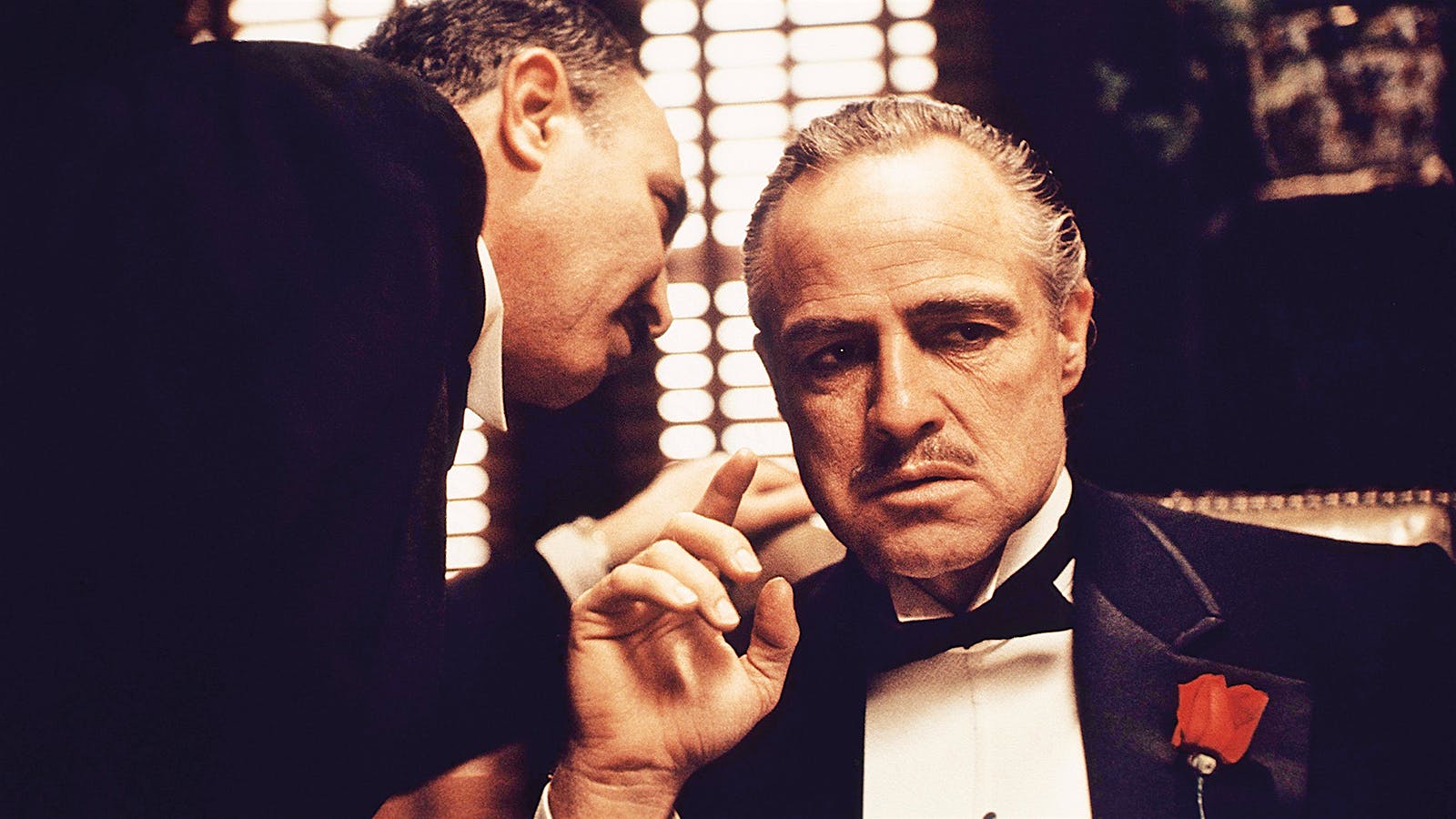
In the opening scene of The Godfather, Marlon Brando held a stray cat that Coppola discovered while on the lot at Paramount Pictures. The cat wasn’t initially called for in the script but became an improvised addition to the scene. Image via Vanity Fair.
Top Francis Ford Coppola Films and Legacy
Coppola famously directed and co-wrote the Oscar-winning movie The Godfather, considered by many to be the greatest American film of all time. The film, shot in New York City, and Italy, follows the patriarch of an Italian-American family and his son. The film was a box-office hit for Paramount Studios, which produced the film. The iconic cast included Marlon Brando, NYFA Guest Speaker Al Pacino, Diane Lane, James Caan, and Robert Duvall. Vito Corleone, who was portrayed by Marlon Brando in the first film, was played by Robert De Niro in the sequel, which followed the early days of the patriarch’s life.
The Godfather Part II in 1974 and The Godfather Part III in 1990 are also a monumental achievement in sequel storytelling, expanding upon the themes of its predecessor while delving deeper into the complexities of power and family. The films went on to inspire a series of films and television series, changing the landscape of crime dramas forever. Beyond The Godfather series, Coppola has crafted several masterpieces that showcase his diverse talent as a filmmaker.
Apocalypse Now (1979)
A visually stunning and emotionally intense war epic set during the Vietnam War, Apocalypse Now is a monumental achievement. The story follows Captain Willard’s (Martin Sheen) journey upriver to assassinate Colonel Kurtz (Marlon Brando), a rogue Special Forces officer.
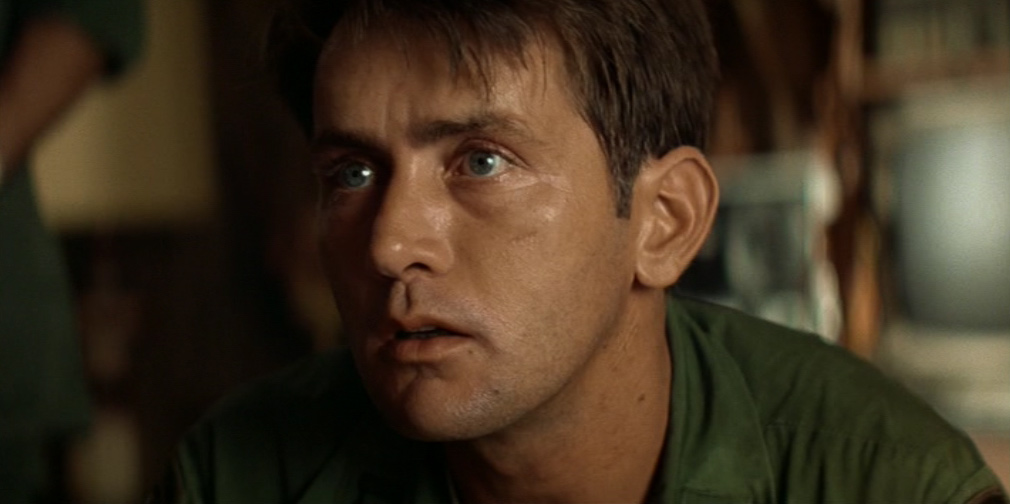
At the time of filming, the Philippines, where the film was shot, lacked professional film laboratories, requiring the raw camera negatives to be sent to the US. Image via Screenmusings.
The film is credited for blending surrealism and stark realism to depict the horrors of the Vietnam War and has an all-star cast that includes Robert Duvall, Laurence Fishburne, and action star Harrison Ford.
The Conversation (1974)
The Conversation offers a gripping psychological thriller exploring themes of surveillance and paranoia. Starring Gene Hackman as Harry Caul, a surveillance expert, the story follows a man entangled in a complex and morally ambiguous case that challenges his ethical boundaries. The film also stars John Cazale, Allen Garfield, Frederic Forrest, NYFA Guest Speaker Cindy Williams, Harrison Ford, and Robert Duvall.
Bram Stoker’s Dracula (1992)
A visually stunning and gothic adaptation of the classic vampire tale, featuring Gary Oldman as the iconic Count Dracula, with Coppola’s unique vision bringing a fresh perspective to the familiar story. The cast of Bram Stoker’s Dracula includes Winona Ryder, Keanu Reeves, Anthony Hopkins, Richard E. Grant, and Cary Elwes.
Rainmaker (1997)
Rainmaker is a legal drama film based on John Grisham’s novel of the same name. The film follows a young attorney played by Matt Damon who takes on a major insurance company accused of denying coverage to a dying man. The iconic film explores themes of justice, ethics, and the power dynamics within the legal system.
Additional Francis Ford Coppola Films
In addition to his well-known films, Coppola also directed, wrote (or both) films such as:
- Rumble Fish (1983): A stylish and atmospheric drama adapted from S.E. Hinton’s novel, the black and white film Rumble Fish explores themes of alienation and identity within a group of rebellious teenagers in a small industrial town. The film stars Matt Dillon, Mickey Rourke, Diane Lane, Nicolas Cage, Diana Scarwid, Dennis Hopper, and Laurence Fishburne.
- One From The Heart (1982): One from the Heart (1982) is a visually lavish romantic musical drama directed by Francis Ford Coppola. Known for its innovative use of sets and cinematography, the film features a soundtrack by Tom Waits, adding an evocative musical layer to the story.
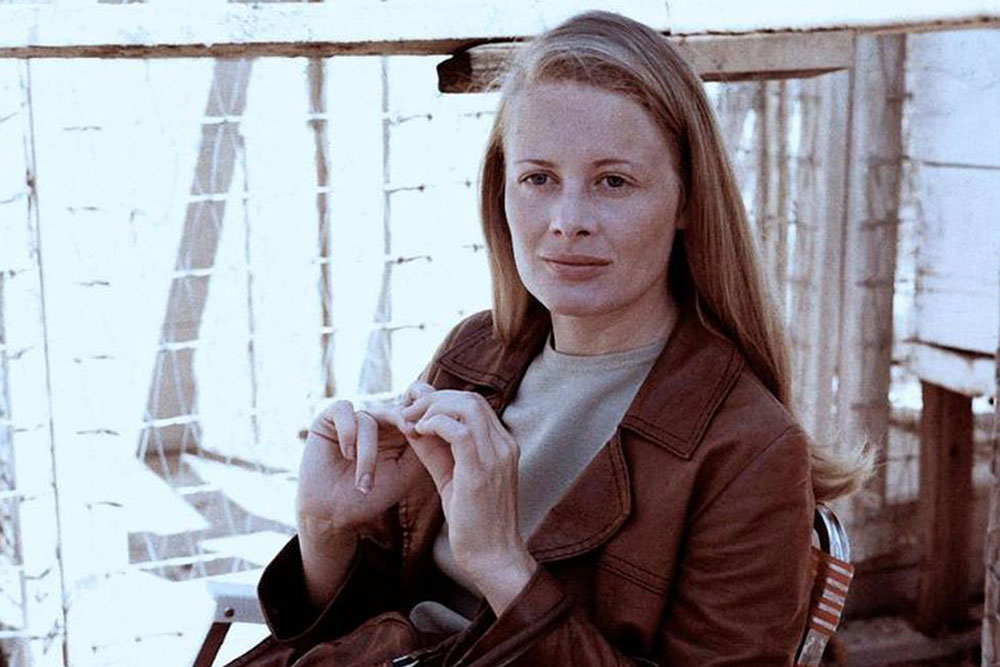
The Rain People is one of Coppola’s favorites from his filmography. Image via IMDB.
- The Rain People (1969): The Rain People (1969) is a lesser-known gem in Francis Ford Coppola’s filmography, and explores themes of existential crisis and self-discovery. The film stars Shirley Knight as a disillusioned housewife who embarks on a spontaneous road trip. Co-starring James Caan and Robert Duvall, The Rain People is praised for its introspective narrative and intimate character study.
- Tucker: The Man and His Dream (1988): This biographical drama directed by Francis Ford Coppola depicts the life of Preston Tucker (Jeff Bridges), an ambitious entrepreneur who designed and built a revolutionary car in the 1940s. The film explores Tucker’s uphill battle against the big automakers and government regulations.
- The Outsiders (1983): This film is an adaptation of S.E. Hinton’s novel about teenage gangs in 1960s Oklahoma. The film features a talented ensemble cast of young actors, including Patrick Swayze, Rob Lowe, Tom Cruise, and Matt Dillon.
In addition to building a stunning filmography, throughout his time as a director and screenwriter, Francis Ford Coppola has also developed strong partnerships with leading Hollywood talent. Robert Duvall and Marlon Brando starred in The Godfather and Apocalypse Now, Diane Keaton in The Godfather, The Godfather Part III and The Rainmaker, and Nicolas Cage, Coppola’s nephew, appeared in Rumble Fish, The Cotton Club, and Peggy Sue Got Married. Laurence Fishburne appeared in Apocalypse Now, Rumble Fish, and The Cotton Club.
Projects and Parodies Inspired by The Godfather I & II & III
From film and television to literature and theater, The Godfather has inspired numerous projects and parodies across various mediums. These adaptations range from direct homages like The Sopranos to comedic reimaginings in shows such as The Simpsons and Family Guy, showcasing the influence of Francis Ford Coppola’s masterpiece on popular culture.
The most notable projects include:
The Sopranos (1999)
HBO’s The Sopranos is one of the earliest instances of a television series drawing inspiration from the film, depicting an Italian-American family with a patriarch involved with the mafia. Starring the late James Gandolfini, the show won 21 Primetime Emmys, including Outstanding Directing for a Drama Series, Outstanding Drama Series, Outstanding Writing for a Drama Series, as well as Emmys awarded to stars James Gandolfini (Tony Soprano), Edie Falco (Carmela Soprano), Michael Imperioli (Christopher Moltisanti), Steve Buscemi (Tony Blundetto), Drea de Matteo (Adriana La Cerva), and Joe Pantoliano (Ralph Cifaretto).
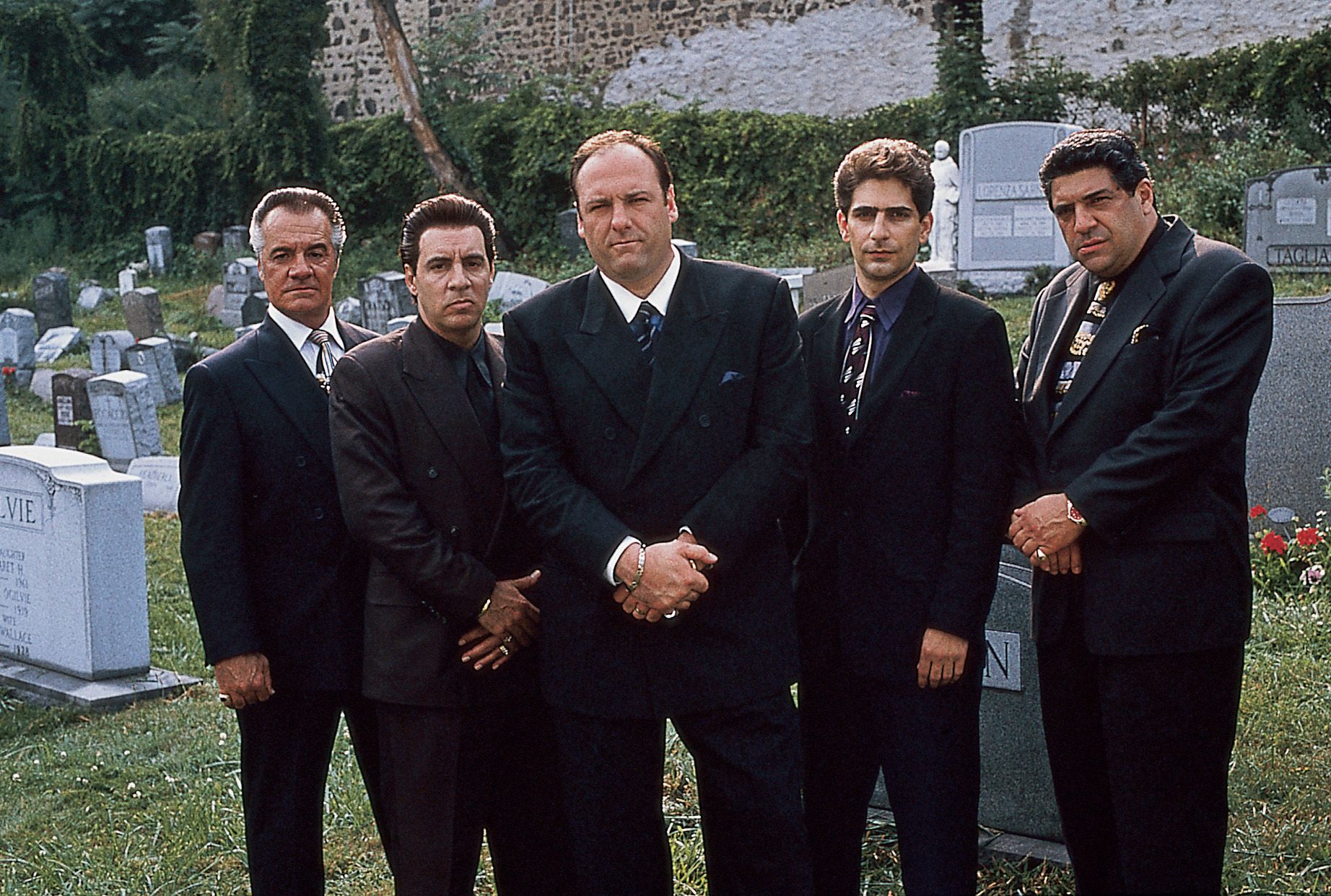
The original scripts David Chase wrote were focused on a mobster seeking therapy from a psychiatrist, and intended for a full-length cinematic production. Image via Complex.
HBO went on to create a film serving as a prequel to the series, titled, The Many Saints of Newark, starring NYFA alum Michael Gandolfini, Jon Bernthal, Corey Stoll, the late Ray Liotta, Leslie Odom Jr., Vera Farmiga, and Alessandro Nivola.
The Offer (2022)
Paramount, leveraging their ownership of the creative rights to The Godfather, developed a series based on the show’s production in the 1970s. Starring Juno Temple, Miles Teller, and Matthew Goode, the story follows new-to-the-industry Albert S. Ruddy. Teller, an exceptional choice for the leading role of Ruddy, plays a determined man who falls in love with the art of filmmaking, while Temple plays the dogged Bettye McCartt. Matthew Goode brings humor and levity to the role of Robert Evans, and Dan Fogler is nearly a spot-on Francis Ford Coppola.
Fun fact: the real-life Al Ruddy is a former NYFA Guest Speaker!
In the limited series, Paramount tells Ruddy’s story, who, despite having no experience as a Producer, was hired by Paramount after successfully pitching Hogan’s Heroes. From there, he’s tasked with producing The Godfather, a process fraught with budget, casting, location, and cultural challenges.
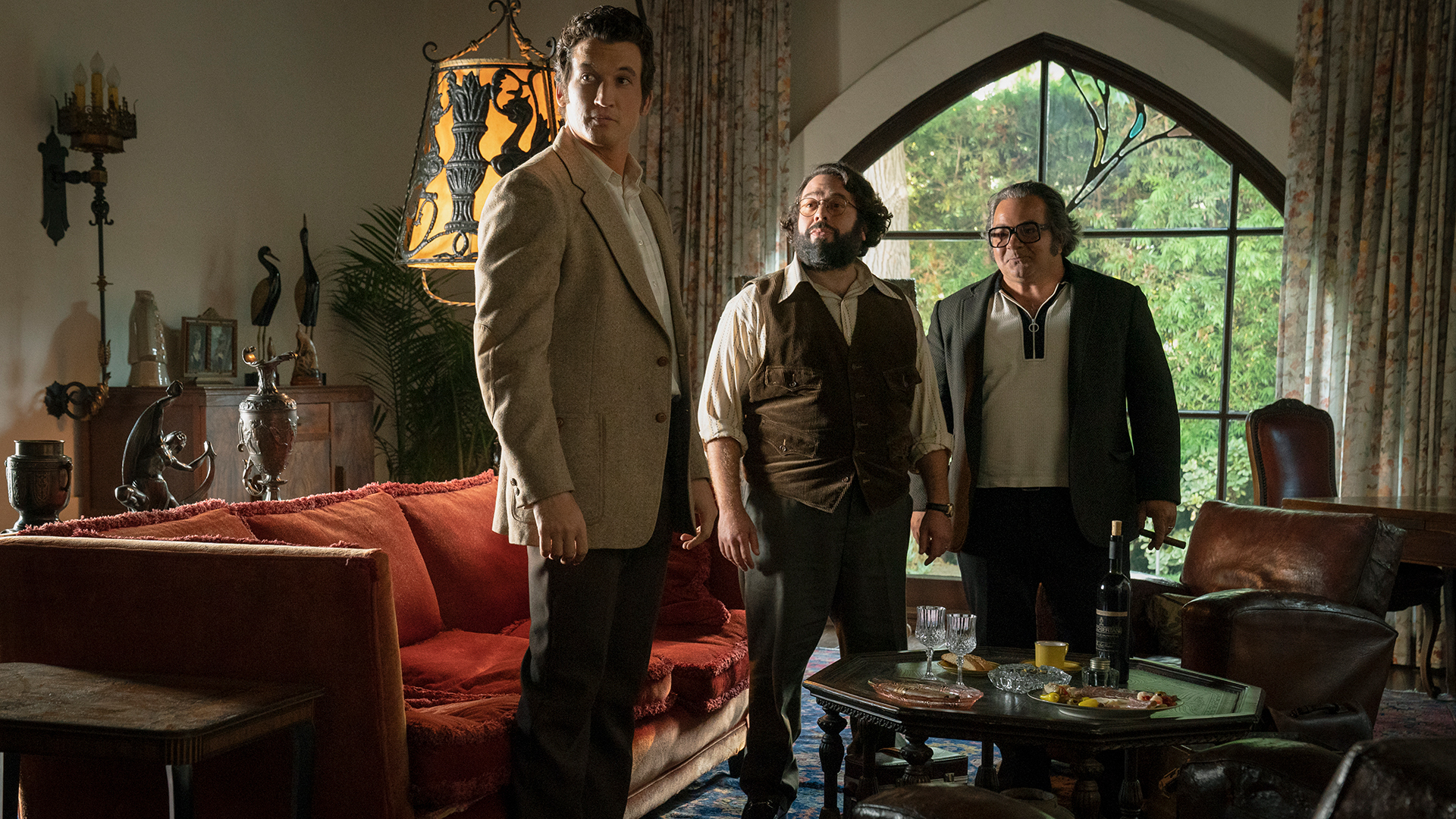
The series includes characters conversationally saying iconic Godfather lines, including”I’m gonna make him an offer he can’t refuse”, and “It’s not personal. It’s strictly business.” Image via Paramount Plus.
In a Q&A at the Australian International Screen Forum (AISF) in New York, Robert O’Neill SVP of Paramount Global discussed the strategic launch of the show during the 30th Anniversary of The Godfather, and his enthusiasm for the project. The Offer is reminiscent of the 1991 film Hearts of Darkness: A Filmmaker’s Apocalypse, the documentary that documents how Apocalypse Now (1979) had similar challenges during production. NYFA camp alum Michael Gandolfini starred as Andy Calhoun.
Continuing The Coppola Legacy
In addition to directing, Francis Ford Coppola produced films such as American Graffiti (1973), The Black Stallion (1979), The Secret Garden (1993), Wind (1992) starring NYFA Guest Speaker Matthew Modine, Freda (2021), Tim Burton’s 1999 film Sleepy Hollow, and Jack (1996). He wrote the screenplays for iconic films such as The Great Gatsby (1974) and Is Paris Burning? (1966).
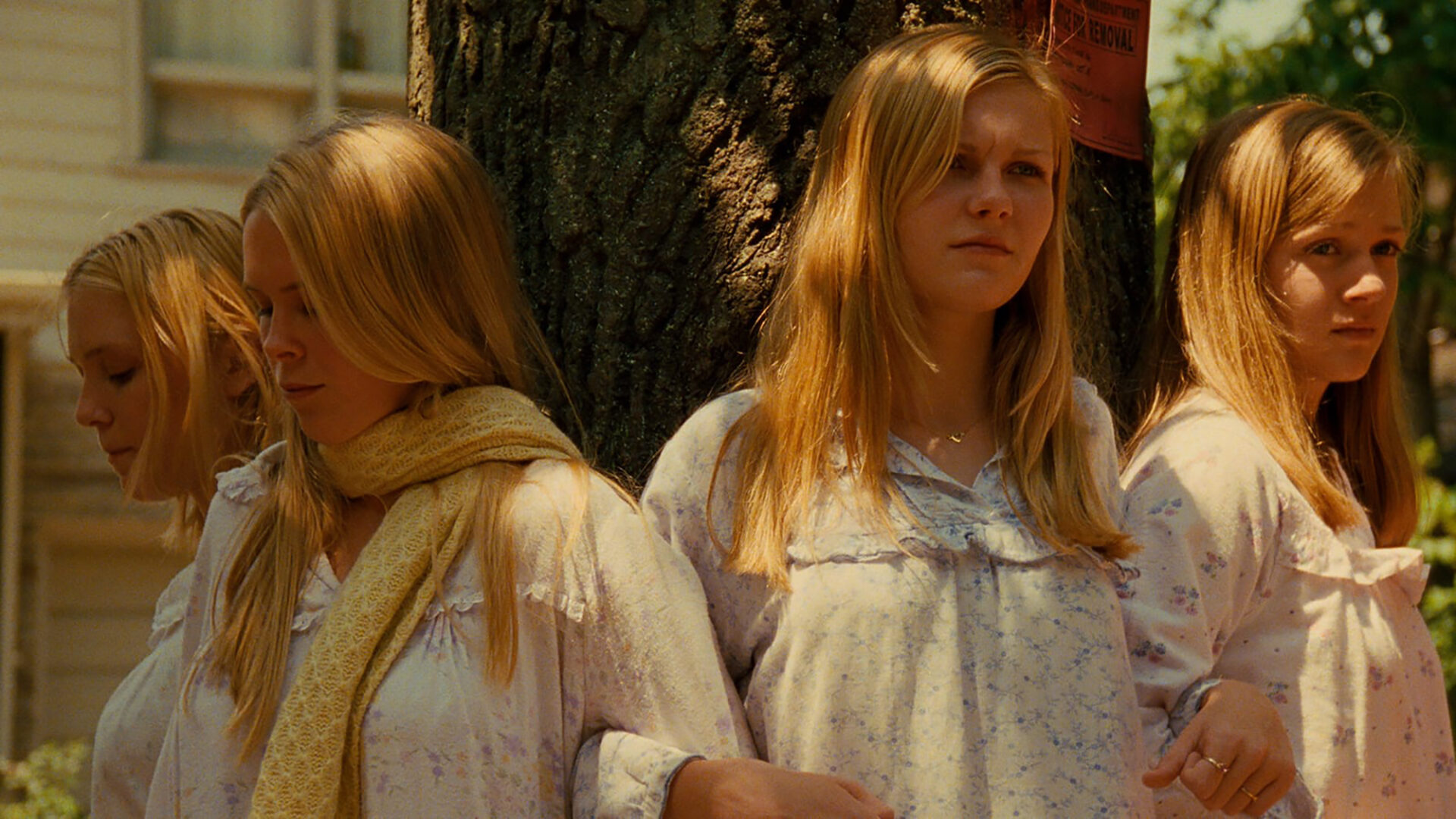
The Virgin Suicides is now included in the prestigious Criterion Collection. Image via The Cinematheque.
He also collaborated with his daughter, director Sofia Coppola, on several films:
- The Godfather Part III (1990) – Sofia Coppola portrayed Mary Corleone, the daughter of Michael Corleone, played by Al Pacino.
- The Virgin Suicides (1999) – Sofia Coppola made her directorial debut with this film, which was produced by Coppola. He served as an executive producer on the project.
- Lost in Translation (2003) – Sofia Coppola wrote and directed this acclaimed film, which Coppola produced.
- The Bling Ring (2013) – Based on the Vanity Fair article “The Suspect Wore Louboutins” and inspired by real events, Sofia directed this film and Coppola served as an executive producer.
- Somewhere (2010) – This film follows a disillusioned actor living at the Chateau Marmont who is surprised when his eleven-year-old daughter comes to town.
Like her father, Sofia Coppola is a talented filmmaker who has carved out her own niche in cinema. With critically acclaimed films such as Priscilla, A Very Murray Christmas, The Beguiled and Marie Antoinette, Coppola’s work often explores themes of identity, alienation, and the complexities of human relationships, making her one of the most influential directors of her generation.
Megalopolis (2023)
Coppola’s latest masterpiece is his self-funded movie Megalopolis, a film that tells the story of the aftermath of a catastrophic event. An architect (Cicero, played by NYFA Guest Speaker Adam Driver) aims to reconstruct New York City into a utopian paradise.
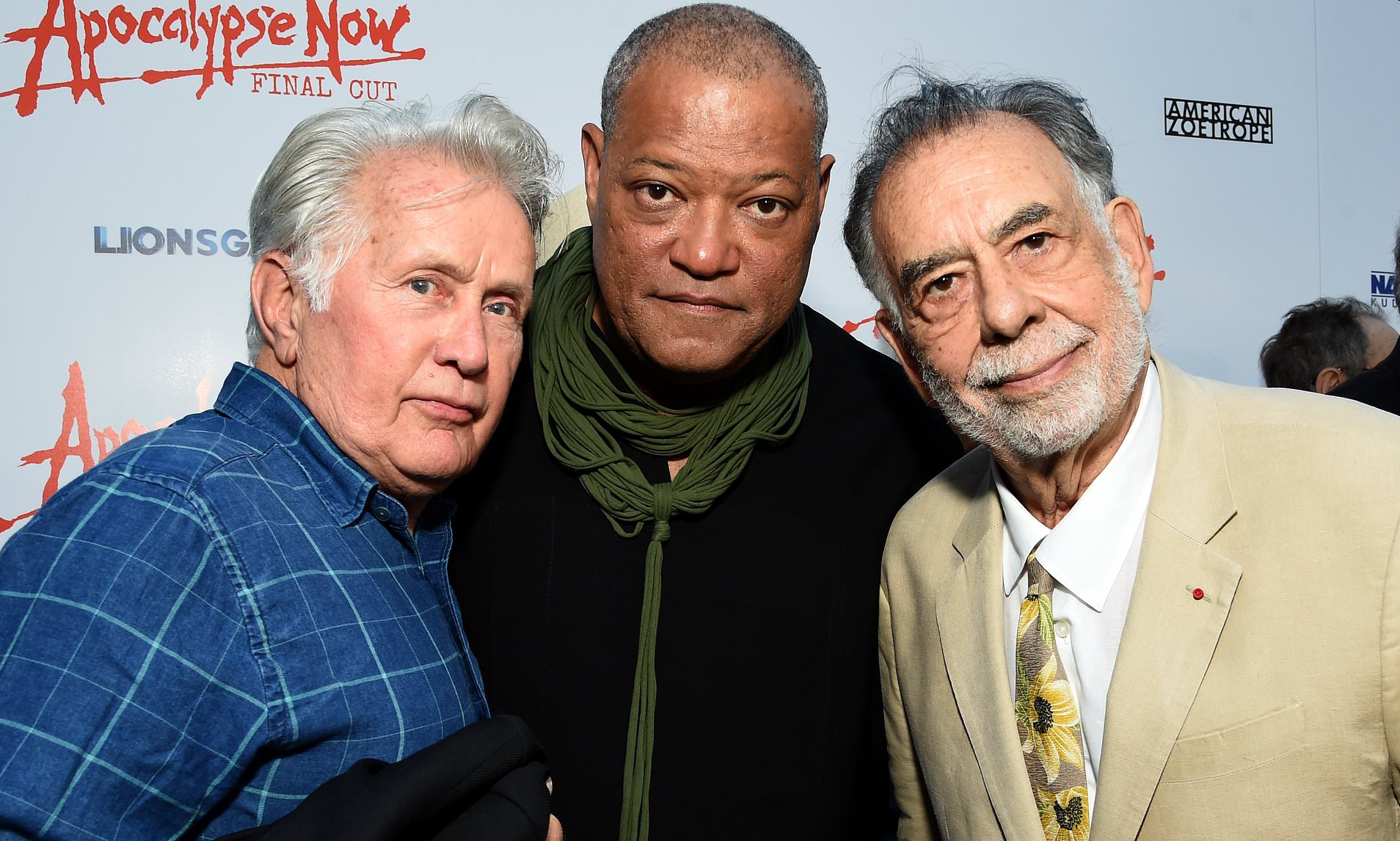
Laurence Fishburne, a frequent collaborator of the filmmaker, is set to appear in Coppola’s upcoming film. Image via the Daily Mail.
NYFA Guest Speaker Nathalie Emmanuel plays Julia Cicero, Breaking Bad star Giancarlo Esposito plays her father, Frank Cicero, and additional cast members include NYFA alum Aubrey Plaza, Jon Voight, Laurence Fishburne, Shia LaBeouf, Jason Schwartzman, Dustin Hoffman, and Saturday Night Live’s Chloe Fineman.
Find Your Future in Film at New York Film Academy
Francis Ford Coppola’s path to becoming one of the most legendary film directors required dedication, perseverance, and a lifelong passion for storytelling. By honing his craft, collaborating with industry professionals, and seizing every opportunity to showcase his unique vision, Coppola paved his way for a career in the world of filmmaking. At New York Film Academy, aspiring filmmakers are immersed in filmmaking from their first day on campus, gaining the technical and creative skills necessary to bring stories to life.
Ready to pursue your dreams in directing and filmmaking? Learn more about our filmmaking, screenwriting, and producing programs today!